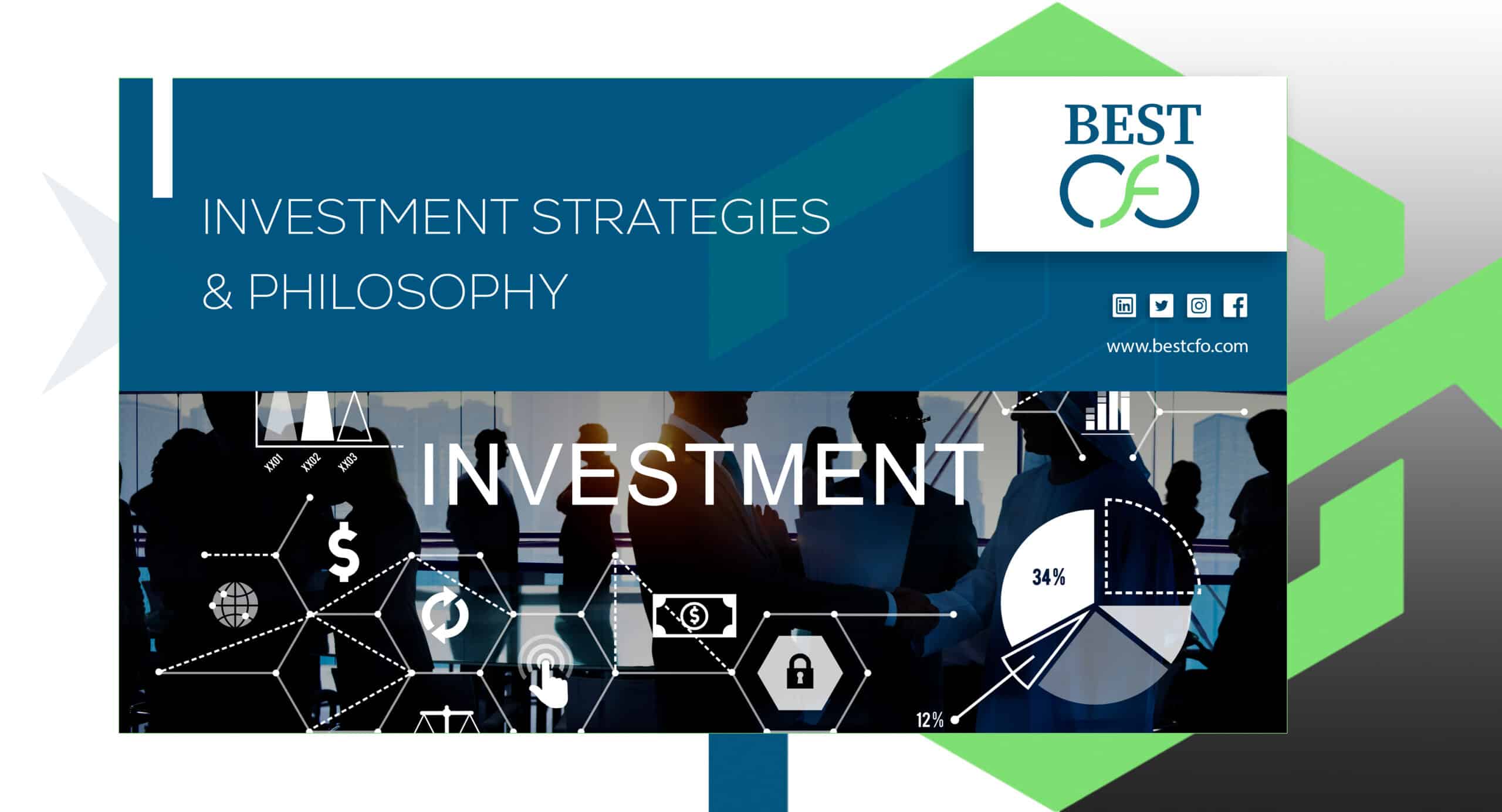
Investment philosophy is all about a set of predefined principles and beliefs that can help an investor in making the correct decision. It’s not just a brief set of principles or guidelines but rather a more defined and broad way to help one align their goals, assess risk, future expectations, etc. So, an investment philosophy is parallel to a specific investing style.
Some of the best investment philosophies have a focus on investing, the significance of shares, growth investing, security investing.
The fundamentals of investment philosophies
The work of an investment philosophy is to set a clear path in the decision making process. This can help the investors in finding their way through a difficult scenario of financial markets with a consistent and disciplined approach. The investment philosophy can provide a range of tactics like value investing that seeks to provide the stocks that have high potential, growth investing, which aims at companies that have a promising future in terms of earnings.
Multiple factors are involved in an investment philosophy. These are tolerance, investor’s risk, financial objectives, market beliefs, etc. Risk tolerance is all about how much risk there is for an investor in terms of having the potential returns.
Financial objectives like the preservation of funds, retirement planning and wealth accumulation provide a clear mind in terms of the investment strategy. Furthermore, the investors' belief regarding the market response, economic circumstances and certain industries can impact the strategy to be chosen.
Going with a personal investment philosophy is significant for a variety of reasons. Firstly, it presents an arranged pathway to making important investment decisions. A good philosophy can help in concentrating in times where the market is saturated and might take a toll on the long-term financial prosperity of a business.
Additionally, it encourages a uniform approach that makes sure that investments are in line with the goals and aims of the investor. An effective investment philosophy provides better functioning, risk management, assessment and enhancements in a specified time period. This provides a stable, improved and consistent approach towards pursuing the financial objectives.

Types of Investment Philosophies
DIfferent investment philosophies can provide multiple ways on how investments are made, planned, assessed and organized. Taking a look at these philosophies can assist future investors in making the best decisions in terms of achieving their financial goals.
Growth Investing
The focal point of growth investing is scouting companies that display a potential for significant future growth. Investors that are growth-oriented try to look for companies that can generate high revenue growth rates, unique products and have authority in leading market positions. Even Though these stocks are not undervalued, they have the prospective future that can provide significant returns. Additionally, growth investors are always looking to invest in technology and related emerging industries, acknowledging the possibility of immense earnings.
Value Investing
Value investing is a term made prominent by Benjamin Graham and Warren Buffet, who are considered as the pioneer of value investing philosophy. Value investing puts an emphasis on undervalued stocks that have a potential to grow thanks to their strong foundations. The followers of this philosophy tend to buy stocks at lower prices than their inherent value. This is due to the assumption that the market prices will one day show the true potential of these stocks.
Value investors however do look for firms that have a robust financial strength, continuous earnings, and lesser financial obligations.
Passive Investing
Passive investing focuses on checking the performance of a definite market index like the S&P 500. In this type of investing, investors purchase exchange-traded funds and index funds that mimic the index’s structure. This technique provides a wider market exposure, lower charges and less risk thanks to diversification. Index investors rely on the accuracy and efficiency of the market and focus on matching the market returns instead of surpassing them.
Income Investing
This type of investing focuses on providing a stable income from investments. The philosophy of income investing puts an emphasis on choosing assets that generate consistent interest amounts like dividend-paying stocks, real estate investment trusts, bonds. Investors that rely on income investing are usually people who seek a financially stable life, retirees, new investors because this type of investment can assure consistent returns over time.
Socially Responsible Investing
Socially Responsible or ethical investing appraises both environmental impact and financial returns as well. Socially Responsible Investors choose a company that is in line with their values. These are the companies that have strong environmental practices, a track record in social contributions, etc. Socially Responsible Investing philosophy is ideal for those who want their investments to portray ethical standards as well as good financial returns too.
Momentum Investing
Momentum investing puts a focus on existing market trends. Investors looking to use this philosophy buy stocks that have a proven upward price trend. This translates to the fact that the momentum will continue. The whole concept of momentum investing is based on the fact that the stocks that have performed well in the near past will definitely provide a prosperous future. This strategy can provide you exceptional returns but carries the risk of market retracement and increased unpredictability.
Contrarian Investing
Contrarian Investing is all about purchasing market assets that are currently not the best performing or out of favor. Contrary, Investing is of the view that peoples contradicting point of views can lead to undervalue and mispricing that provides opportune time for purchasing these undervalued stocks. For understanding this philosophy there needs to be a strong grasp on market psychology and calmness as it takes time for the market to realize the value of certain stocks.
The Verdict
It's important to stick with an investment policy when investing and have a clear alignment of your financial goals, risk management providing a uniform approach towards dealing with market highs and lows. It doesn’t matter which investment philosophy you invest on, staying consistent is the main thing here. By doing this, you can avoid decisions governed by emotions and helps you stay on the track in case there are market shifts.
Related Posts
Organic vs Inorganic Marketing: Pros, Cons, and Best Use Cases
Organic vs Inorganic Marketing: Pros, Cons, and Best Use Cases When it comes to growing…
What Is Operating Capital and Why Is It Important?
What Is Operating Capital and Why Is It Important? Are you ready to dive into…
How to Scale a SaaS Business Without Losing Your Customers?
What Are the 5 Sources of Funding? So, you’ve got the dream. The vision. The…
What Are the 5 Sources of Funding?
What Are the 5 Sources of Funding? So, you’ve got the dream. The vision. The…
 Demos
Demos  Colors
Colors  Docs
Docs  Support
Support 














